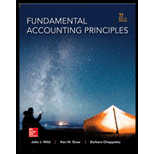
Introduction:
• Process Costing is a method of cost allocation and calculation used when the types of goods produced are similar in nature and in large quantities.
• The cost allocation is done for all products on basis of a
• The advantage of this method is that it allows for simple and efficient cost allocation and calculation especially when the variations in the types of goods produced are minimal.
Cost Classification
• The time taken from the start of the sale process, i.e. the receipt of a confirmed sales order, to the completion of the transfer of goods or services, i.e. dispatch of goods consists of several activities and costs. Components of costs comprise of Variable costs,
• Variable costs refer to the costs of manufacture that have a direct co-relation with the volume of the goods manufactured, i.e. the costs increase with an increase in the goods produced. Examples are costs of direct material and direct labor.
• Manufacturing costs are costs that are directly incurred in connection with manufacture of goods. Examples are Direct materials and Manufacturing
• Fixed costs refer to the costs of manufacture that have an inverse co-relation with the volume of the goods manufactured, i.e. the costs decrease with an increase in the goods produced. Examples are costs of factory rent,
Work In Process Accounts
• Work in Process accounts are maintained in a Process costing system to account for the various types of direct costs incurred in the form of direct material, labor and overhead.
• The costs of production directly attributable to the goods manufactured are recorded in a Work in process account.
• The costs of Goods completed in production are transferred to the finished goods from the Work in Process Account.
To Determine:
Why costs of some materials do not actually become part of the finished product, including some labor costs not directly associated with producing the product, are classified as direct costs.
Want to see the full answer?
Check out a sample textbook solution
Chapter 20 Solutions
Fundamental Accounting Principles -Hardcover
- What is the effect of writing off an uncollectible account under the allowance method?A. Increases net incomeB. No effect on total assetsC. Decreases revenueD. Increases expensesneed helparrow_forwardWhat is the effect of writing off an uncollectible account under the allowance method?A. Increases net incomeB. No effect on total assetsC. Decreases revenueD. Increases expensesarrow_forwardThe purpose of the trial balance is to:A. Prepare for auditB. Ensure all transactions are postedC. Check that total debits equal total creditsD. Detect all errors correct answerarrow_forward
- Please Make Perfect Answer For this Financial Accountingarrow_forwardThe purpose of the trial balance is to:A. Prepare for auditB. Ensure all transactions are postedC. Check that total debits equal total creditsD. Detect all errors correct solutarrow_forwardThe purpose of the trial balance is to:A. Prepare for auditB. Ensure all transactions are postedC. Check that total debits equal total creditsD. Detect all errors need helparrow_forward
- The purpose of the trial balance is to:A. Prepare for auditB. Ensure all transactions are postedC. Check that total debits equal total creditsD. Detect all errorsarrow_forwardGeneral Accounting Question solve without any problemarrow_forwardNeed Answer of this General Accounting Question Solution with Detailed Explanationarrow_forward

 AccountingAccountingISBN:9781337272094Author:WARREN, Carl S., Reeve, James M., Duchac, Jonathan E.Publisher:Cengage Learning,
AccountingAccountingISBN:9781337272094Author:WARREN, Carl S., Reeve, James M., Duchac, Jonathan E.Publisher:Cengage Learning, Accounting Information SystemsAccountingISBN:9781337619202Author:Hall, James A.Publisher:Cengage Learning,
Accounting Information SystemsAccountingISBN:9781337619202Author:Hall, James A.Publisher:Cengage Learning, Horngren's Cost Accounting: A Managerial Emphasis...AccountingISBN:9780134475585Author:Srikant M. Datar, Madhav V. RajanPublisher:PEARSON
Horngren's Cost Accounting: A Managerial Emphasis...AccountingISBN:9780134475585Author:Srikant M. Datar, Madhav V. RajanPublisher:PEARSON Intermediate AccountingAccountingISBN:9781259722660Author:J. David Spiceland, Mark W. Nelson, Wayne M ThomasPublisher:McGraw-Hill Education
Intermediate AccountingAccountingISBN:9781259722660Author:J. David Spiceland, Mark W. Nelson, Wayne M ThomasPublisher:McGraw-Hill Education Financial and Managerial AccountingAccountingISBN:9781259726705Author:John J Wild, Ken W. Shaw, Barbara Chiappetta Fundamental Accounting PrinciplesPublisher:McGraw-Hill Education
Financial and Managerial AccountingAccountingISBN:9781259726705Author:John J Wild, Ken W. Shaw, Barbara Chiappetta Fundamental Accounting PrinciplesPublisher:McGraw-Hill Education





